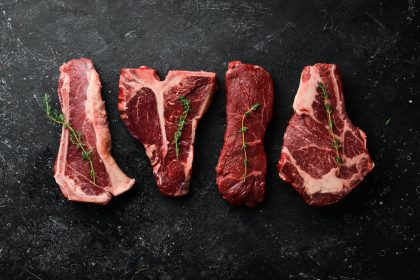Cravings can be intense, sudden and sometimes downright confusing. But what if your body was trying to tell you something deeper? What if the food you crave isn’t just a random desire, but a signal from your body that something is off? Understanding what your food cravings reveal about your health deficiencies can open a new path to better self-care and early intervention.
Cravings as biological messages
We often blame our cravings on lack of discipline or a sweet tooth. But the truth is, cravings are complex biological messages. Your brain, hormones, gut microbiome and emotional state all play a role. Cravings are not always a result of hunger — they may be your body’s way of asking for specific nutrients it’s missing.
If you’re constantly reaching for the same types of food, it’s time to pay attention. Decoding these habits could help you fill in critical nutritional gaps and improve your overall well-being.
Chocolate cravings and magnesium
Chocolate is one of the most common cravings worldwide, and there’s a biological reason why. When your body is deficient in magnesium — a mineral involved in over 300 enzyme reactions — it might drive you to seek out dark chocolate, one of the richest natural sources.
Signs of magnesium deficiency include:
- Muscle cramps
- Fatigue
- Irritability
- Trouble sleeping
While chocolate can give a temporary boost, reaching for magnesium-rich foods like almonds, spinach and avocados provides a better long-term solution.
Salt cravings, dehydration and stress
Chips, pretzels and salty crackers might call your name after a long day, especially when you’re emotionally drained. But salt cravings often stem from more than just stress eating. They may indicate:
- Electrolyte imbalance
- Dehydration
- Adrenal fatigue
Your adrenal glands, responsible for producing stress hormones, need sodium to function properly. If they’re worn out, your body could seek salt to compensate.
Instead of processed salty snacks, consider adding a pinch of sea salt to a glass of lemon water or including mineral-rich foods like seaweed or celery in your diet.
Ice cravings and iron deficiency
An unusual craving that often goes overlooked is the desire to chew ice — also known as pagophagia. This is strongly linked to iron deficiency, even in people who don’t have full-blown anemia.
Iron plays a critical role in oxygen transport in your blood, and a lack of it can cause fatigue, shortness of breath and pale skin. People who crave ice may not even realize how common this red flag is.
See your doctor for a simple blood test if you find yourself chewing ice regularly. It could be your body’s quiet alarm for help.
Sugar cravings and blood glucose issues
When that afternoon energy crash hits, many people reach for cookies, soda or pastries. These sugar cravings may be more than just a bad habit. They often indicate:
- Fluctuations in blood sugar levels
- Irregular meal patterns
- High-carbohydrate diets
- Chromium deficiency
Chromium is a mineral that helps regulate insulin and stabilize blood sugar. Without it, your body struggles to process glucose properly.
Whole grains, broccoli and eggs contain chromium and can help maintain balance throughout the day — reducing the grip sugar cravings have on your energy and mood.
Red meat cravings and mineral needs
Ever find yourself craving a burger or steak out of nowhere? That deep desire for red meat may be a sign that your body is lacking iron or zinc — two nutrients that red meat happens to be rich in.
Iron deficiency can sap your energy, while low zinc levels can affect your immune system and wound healing. Pregnant people and those with heavy menstrual cycles often experience these cravings more intensely.
If you’re vegetarian or vegan, monitor these nutrients closely and find plant-based sources or supplements to avoid long-term depletion.
Carb cravings and mood regulation
Carbs like bread and pasta are often craved during emotional lows or periods of fatigue. But biologically, these cravings could also be linked to low levels of tryptophan — an amino acid that helps your brain make serotonin, the feel-good hormone.
Low serotonin can cause mood swings, depression and sleep problems. Since carbs help increase serotonin temporarily, your body may crave them to improve mood — albeit in an unsustainable way.
Consider alternatives like oats, turkey and seeds that offer slow-release energy and serotonin support without the sugar crash.
Beyond common cravings
Other notable craving connections include:
Dairy cravings: Could indicate calcium needs or comfort-seeking behavior. Besides dairy, calcium sources include kale, tofu, fortified plant milk and chia seeds.
Spicy food cravings: Might mean you need a metabolism boost or endorphin release. Spicy foods increase circulation and raise your core temperature. For a gentler approach, try anti-inflammatory spices like turmeric and ginger.
Listening to your body
Every craving has a story. When you notice repetitive cravings — especially those tied to specific foods or food groups — it’s a sign worth investigating. While not all cravings directly link to health deficiencies, they often serve as the first clues leading you to discover deeper imbalances in your nutrition, hormones or mental well-being.
Recognizing and responding to those signals with awareness, instead of guilt or impulse, is one of the most empowering ways to protect your long-term health.
A mindful approach to cravings
Your cravings aren’t your enemy. They’re messengers.
The next time you find yourself standing in the kitchen or scrolling through delivery apps late at night, pause for a moment. Ask yourself what your body might be trying to communicate. Are you exhausted? Is your diet lacking a critical nutrient? Is your emotional state in need of attention?
Food cravings are a call to pay closer attention — not just to your diet, but to your whole self.
By responding thoughtfully instead of reactively, you give your body what it truly needs. And that’s where healing begins — not in the moment of indulgence, but in the act of listening.
This story was created using AI technology.















